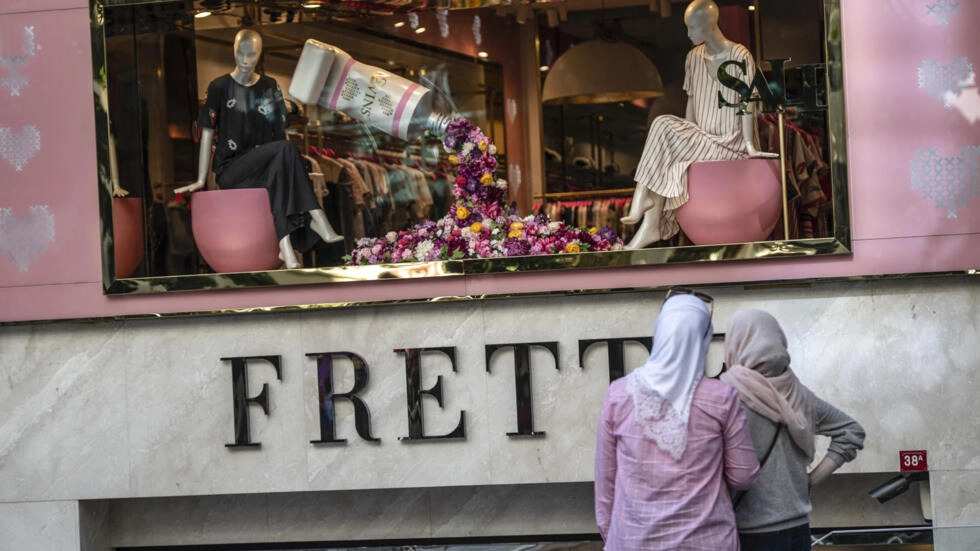Turkey’s May 14 elections are looking uncertain for Turkish President Recep Tayyip Erdogan amid a sluggish economy, young Turks less enamoured with the ruling AKP and an opposition that is finally united. Support from conservative women, usually a pillar of his voting base, is also looking less robust ahead of the vote. FRANCE 24 reports.
The “AKP opened up new areas for conservative women by removing the headscarf ban”, Esra Ozcan tells FRANCE 24. The author of, “Mainstreaming the Headscarf: Islamist Politics and Women in the Turkish Media,” Ozcan cites the fact that veiled women can now serve as police officers, judges, university professors or elected political representatives – all of which was against the law unless they removed their headscarves until the AKP came to power.
“This is indeed a group that experienced an expansion of freedoms under [the] AKP,” says Ozcan, a senior professor of practice at Tulane University in New Orleans.
Murat Yetkin, a well-known Turkish editorialist, says one of the reasons that explains Erdogan’s extraordinary popular appeal in the early 2000s was the authoritarian tendencies of the ruling coalition at the time that employed openly anti-Islamic rhetoric targeting veiled women. By denouncing this trend, the young charismatic leader became the champion of conservative women who, from then on, formed an important base of his support.
But 20 years later, “Women have changed,” says Ozlem Zengin, vice president of the AKP bloc in the Turkish parliament.
Those who were among Erdogan’s most ardent supporters in the early years – Erdogan has been president of Turkey since 2014 – could turn their backs on him on May 14 for the country’s presidential and legislative elections.
Tradition and domestic violence
Erdogan often reminds the Turkish public of how he helped strike down the headscarf ban. He believes he has done more for women than many of his predecessors, although many deem that this measure alone was not enough.
Erdogan’s speeches reveal a traditional vision of women’s role in society: above all, a woman is a mother (to three children, if possible) who also takes care of the elderly. It is an ideal that remains unchanging even as the country experiences rapid urbanisation and modernisation.
In today’s Turkey, women – even those who wear the veil – want the same opportunities and working conditions as men.
When Erdogan pulled Turkey out of the Istanbul Convention on violence against women in July 2021 it confirmed his anachronistic tendencies. In recent years, the Erdogan government has taken a strong stance in favour of traditional family values and against the LGBT “propaganda” embraced by the Western world and the “normalisation” of homosexuality.
With the upcoming elections likely to be Erdogan’s most contested yet, the decision to incorporate two Islamist parties into his coalition that have called for the annulment of a law protecting women from domestic violence is dividing members of the AKP, a rare feat.
Red line
Zengin, 53, did not mince her words when she stated that the passage of law 6284 would be a “red line”, a comment that attracted a fireball of criticism and threats coming from her own political party. She later tried to put out the flames. “We’re sorry. I don’t want to say anything more about this law. I’m tired. I am saddened when I see the situation of our community. I did not say that the law couldn’t be discussed. I only wish that we can discuss it in a more humane, decent and Islamic environment.”
Among those that supported Zengin is the Kadem Foundation. It, too, is affiliated with the AKP and its leader is none other than one of Erdogan’s daughters. But the foundation published a tweet denouncing “an insulting and misogynistic campaign” and reminded its followers that “half of the voters who will cast their ballots are women”.
In another sign that Turkish society is evolving on these issues, an episode of “Kızılcık Serbeti” (Cranberry Sorbet), one of Turkey’s most popular TV shows, ended last month with a veiled woman being killed by her husband. The country’s RTUK media regulatory council ruled that the scene “encouraged domestic violence”, demanding the producers pay a heavy fine and taking the show off the air for five weeks. Its fans were surprised to see a documentary on Islamophobia, notably featuring President Erdogan, airing on April 14 instead of the show.
Conservative women are not a homogeneous voting bloc in Turkey. But Ozcan is confident that the AKP “has lost sections of it”.



